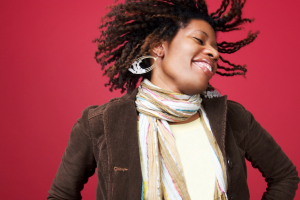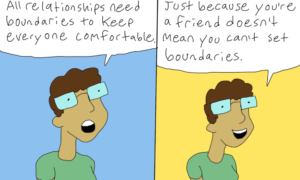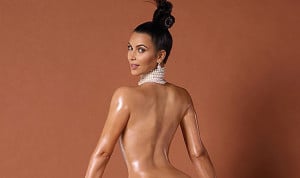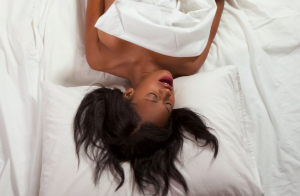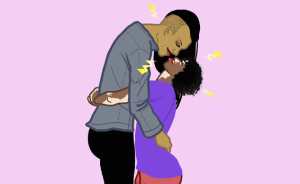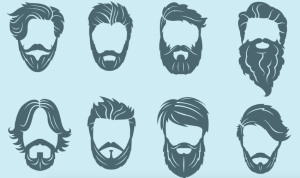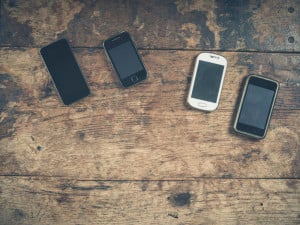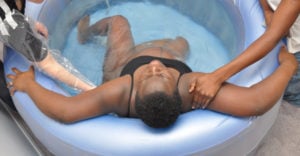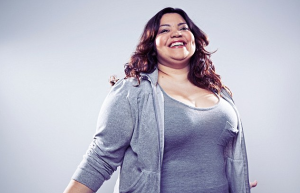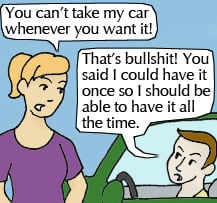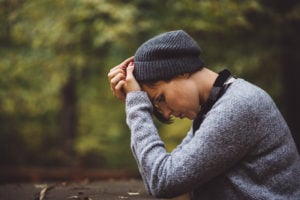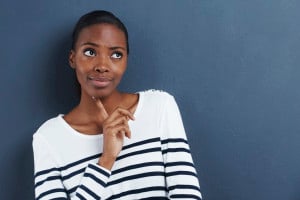Originally published on The Huffington Post and republished here with the author’s permission.
When I first realized that I found both boys and girls attractive, I didn’t have the language to describe my sexuality.
On the playground, the word “gay” was thrown around as an insult – one that I also ruthlessly hurled at other kids. But “bisexual?” That was not a part of our lexicon.
As a pre-teen, I remember scribbling on the pink pages of my journal an ominous question: “Am I gay?”
It didn’t matter that I fell in love with boys, too. As far as I knew, my crushes on girls were an indication that I was broken.
Growing up in a conservative, black Pentecostal church, meant that I – and most of my family – had been taught for generations to believe that heaven was strictly reserved for straight people.
I felt terrified of my same sex attractions, tried to suppress them, and focused my attentions on the handsome boys I met at church.
I didn’t learn that bisexuality was an actual identity until well into my college years. By this time, I was in a long term relationship with a man.
While I told him of my attraction to women, I was too afraid to share my secret with most of the other people in my life. I had no openly bisexual role models of any color to look up to.
I didn’t know anything about June Jordan, the gorgeously talented African-American writer who also happened to be openly and proudly bisexual.
And while I was a millennial growing up with the Internet, there was no Web 2.0 in my youth that could instantly connect me to other queer and bisexual people of color.
I hope #ThisIsLuv can highlight acceptance of LGBTQIA+ folk in black communities without glossing over significant tensions, homophobia, and biphobia.
Black bisexual women are often misunderstood, excluded, or fetishized. Black bisexual men, on the other hand, are routinely vilified.
Who expresses love and support for our black bisexual brothers?
Bisexual people comprise over half of LGB-identified people in the United States, yet we are routinely rendered invisible and marginalized.
The erasure of bisexual people is particularly problematic for African-Americans, who already face the strain of racism.
Bi black people exist at the intersections of many forms of oppression, and this difficult positionality makes it complicated for us to find love.
We not only have to deal with homophobia in our families – we also have to navigate biphobia among black gays and lesbians – while dealing with racism in the broader LGBTQIA+ “community.”
There is also the reality that most “LGBTQIA+” spaces are actually not for us. Very often, they are implicitly white-centered and/or mostly geared toward gays and lesbians.
On top of this, bi black women have to deal with sexism and hetero-patriarchy. Some black bisexuals people are transgender and experience the violence of transphobia.
These multiple burdens might explain why it’s particularly difficult for bisexual people to “come out.”
We are routinely given the “side eye” from multiple communities – misunderstood, implicitly or explicitly excluded, or reduced to exotic sexual objects.
We also experience poorer physical and mental health relative to other sexual minorities. It’s a lot to deal with.
With all this said, I have found love and support as an openly bisexual woman, but it’s a journey that has taken time, vulnerability, and resilience.
One of the challenges of being bi is that we often have to come out again and again when we date people of different genders – a process that can be frustrating and exhausting. I’ve had family members who know I’m bi begin to believe that I “turned straight” when I dated men.
On the flip side, I have also had to learn that black queer women are not always my allies. I remember once coming out as bi to a black lesbian, only to later overhear her ridiculing another bisexual woman for being “confused.”
At the time, my internalized biphobia made me feel ashamed rather than angry. I imagined that I, too, had fulfilled “bad, confused bisexual” stereotypes. It took me years to realize not all lesbians are biphobic and to stop giving a damn about those who are.
But my early experience was jarring and taught me that, as a bi woman, I can’t expect other queer women to necessarily be bi-inclusive.
The biggest transformation, for me, was actually “coming out” about my spirituality.
For many years, I kept my relationship with God in the closet and on the back burner – afraid of being judged by other academics and people in my professional life.
But once I experienced a profound shift in my relationship with God, I could no longer keep quiet about the divine love I’d discovered within myself.
Stepping out on faith, I found the strength and courage to love myself exactly as I am.
This self-love, in turn, allowed me to raise the bar for the love I wanted to give and receive in my relationships.
My spiritual practice also helped me cultivate compassion for people in my life who reacted negatively to my dating women. The more I came to forgive myself for my own biphobia and homophobia, the more I felt compassion for those who are still struggling with the limitations of their social conditioning.
Today, I’m in a loving relationship with a lesbian woman who has done the work to recognize and transcend her own biphobia and homophobia.
I’ve been blessed to build connections and friendships with other LGBTQIA+ black folk. Finding support within my family has been a process that has strengthened my faith, patience and capacity to forgive. My mom’s path toward acceptance has taken years of difficult conversations and internal work.
At one point, she even refused to have Thanksgiving dinner with me and my girlfriend, because she felt uncomfortable with our relationship. I felt hurt, angry, and disappointed.
I couldn’t reconcile the loving, generous, spiritual woman I know to be my mother with her inability to sit down and break bread in thanksgiving with me and my partner.
I made it clear that if she wanted me – her only child – in her life, she would have to find a way to move past her discomfort.
Drawing a line in the sand with my beloved mother wasn’t easy. But part of love is setting boundaries, even and especially when it is painful to do so. I knew that I had no control over her feelings, but I prayed that God would somehow heal the rift.
Fast forward a few months.
Unbeknownst to me, my mother had been praying, too. At some point, her heart miraculously expanded. She reached out and invited me and my partner to spend a weekend at her home in New England.
To our surprise, Mom rolled out the red carpet, welcomed us with open arms, cooked up a storm, and showered us with love. Last Christmas, she sent gifts for both me and my girlfriend – and even contributed to my partner’s surprise birthday dinner.
My hysterically funny Aunt T. has been supportive since I came out in my early twenties. When she calls, she checks on both me and my partner.
Although she doesn’t necessarily understand my sexuality, she expresses unconditional love for her niece and celebrates the love I’ve found.
When I came out to my Southern grandma, she told me that it didn’t bother her one bit: “As long as you’re happy, I’m happy.” Then she added: “When can I meet her?” One of my cousins is also openly queer and provides a shoulder to lean on, hilarious dating advice, and wisdom beyond her years.
This is love: The everyday journey of learning to live in our authentic truth. It is a journey that takes time, for ourselves and for the people in our lives.
I could never have imagined, as a young queer kid, that my shameful secret would become something I would proudly and lovingly share with the world.
It is this path to radical self-acceptance that allows me to know and affirm:
I am a black, bisexual woman.
I am a black, bisexual woman.
I am a black, bisexual woman.
And I am love(d).
[do_widget id=’text-101′]
Crystal Fleming is an Assistant Professor of Sociology and Africana Studies at Stony Brook University. She was recently on leave as a Woodrow Wilson Career Enhancement fellow completing her first book on race politics and collective memory in France. This work is based on her dissertation, “Imagining French Atlantic Slavery”, (Harvard, Sociology) which was recognized by the American Political Science Association in 2012 as the best doctoral thesis on contemporary French Politics. Check out her website, Aware of Awareness, as well as www.crystalfleming.com. You can find her on Twitter @alwaystheself.
Search our 3000+ articles!
Read our articles about:
Our online racial justice training
Used by hundreds of universities, non-profits, and businesses.
Click to learn more
Most Read Articles
- « Previous
- 1
- …
- 30
- 31
- 32


